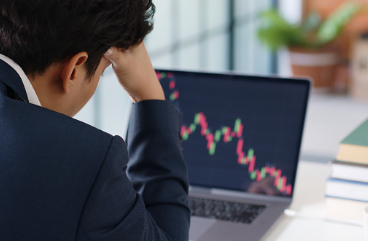5 mental mistakes that will make you lose money
There are many ways to disrupt trade, and most of them come from mental disorders.here are five general things to watch out for.
Lack of Confidence in Methods
When you really believe in something, you just do it. Your trading strategy must be like that. Make it ingrained and practiced so it becomes a habit.know that following the strategy you will succeed, and doing anything outside the strategy the results are unknown, and therefore not worth the risk.
How do you get this kind of trust in your methods? There is only one way, which is to practice it until there is no doubt in your mind that the method works.it can take several months, but will greatly help reduce many of the mental errors discussed above.
Not Preparing for Today
Your life might be busy but making sure you are ready for a trading day is a necessary step.this involves simple things like checking when high-impact economic data is released, or checking stocks, foreign currency pairs, or futures contracts that you trade for scheduled news (income, commodity reports, etc.).it also means making sure the settings on your trading platform are correct, that you are focused and that you have eaten and gone to the bathroom ... so you don't have to leave your trade / trading potential at the wrong time.
Make a list of daily trading routine activities that you must follow every day; this will help avoid mistakes like accidentally having a position when a big story comes out.it's easy to take this advice for granted and forget to do it the next few days. That's a big mental mistake.
Trading when ill or out of focus
It takes mental effort to follow your daily trading strategy.when sick or focused on other things (maybe romance or family problems, health problems or illnesses, money problems etc.) the attention needed for trading will be divided.it makes us more vulnerable to making mistakes, such as entering wrong order orders, messing up our position size, losing trading opportunities or acting on emotions rather than following our strategy.
If you want to trade, do it when you are focused and healthy. You must have mental energy to follow your plan. If not, don't trade.if you start trading and see that you feel bad, and disrupt trade, stop trading. There will be a market tomorrow or the day after tomorrow. Take the time you need.You will be grateful for money that is not lost.
Allowing Previous Trading Affects Subsequent Trading
If you see valid trading signals, should your last trade (win or lose) influence your decision? No, but for many traders, it affects.the mental error is to assume that the probability of this trade is related to the outcome of the last trade. It is not that.if a trader wins 60% of his trade, then if he sees a valid buy signal, a reasonable assessment is that the trade also has a 60% chance of success.
Find a valid buy signal, and don't let the last trade create fear or greed.every trade is different, so trade according to your trading strategy and plan. Past losses don't make you afraid to trade (assuming you have a profitable strategy and know how to trade), and past victories don't make you arrogant either.
Trading Beyond Strategy
Every strategy has a threshold.for example, only generate a few trading signals a day, limit the size of your position, only work in certain markets or at certain times. Trading within the limits of strategy means you can reap the rewards.being greedy and trying to produce more than can be accommodated by strategies - such as trading outside of the best time, trying to find "extra" trade, or using it in a different market - may have a negative effect on overall profitability.
If you have a profitable system, trade as long as it is in accordance with the system.over time capital will grow and you will likely be able to generate more income from it. If you don't have a profitable system to follow ... return to the first point above.


0 Komentar
Post a Comment